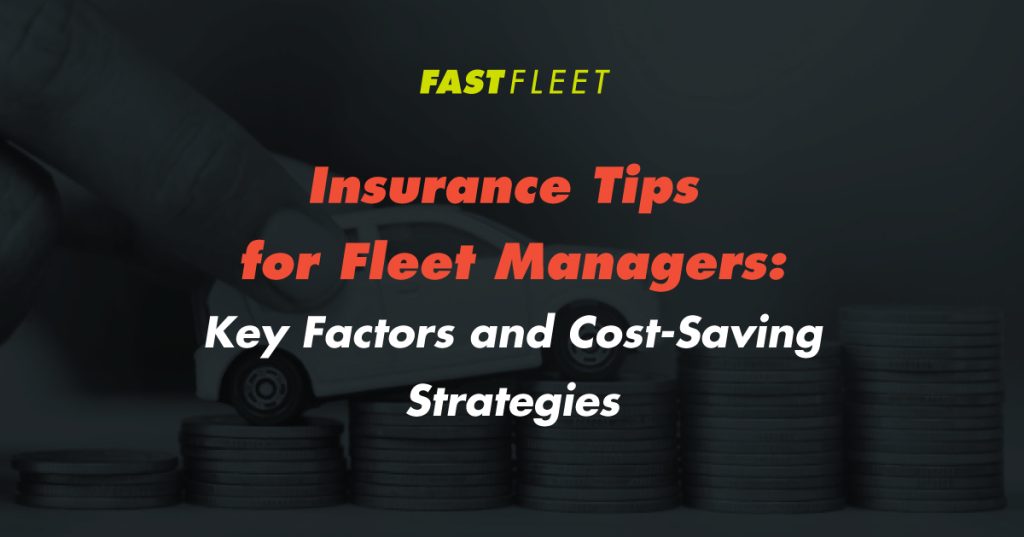In the realm of fleet management, insurance plays a pivotal role in safeguarding vehicles, managing risks, and ensuring compliance with legal standards.
Beyond regulatory requirements, insurance coverage is essential for protecting businesses from financial losses arising from accidents, theft, or other unforeseen incidents.
Understanding the nuances of fleet insurance and implementing cost-saving strategies can significantly impact operational efficiency and bottom-line savings for fleet managers.
Understanding Insurance Needs
Effective fleet insurance starts with understanding the types of coverage essential for protecting vehicles and mitigating risks:
- Liability Insurance: This foundational coverage protects against damages and injuries caused by fleet vehicles to third parties. It covers legal fees, medical expenses, and property damage resulting from accidents where your drivers are at fault.
- Comprehensive Insurance: Beyond collisions, comprehensive insurance covers non-collision incidents such as theft, vandalism, fire, and natural disasters. It provides financial protection against a wide range of risks that could otherwise disrupt fleet operations.
- Collision Insurance: Specifically designed to cover damages resulting from collisions with other vehicles or objects, collision insurance ensures that your fleet vehicles can be quickly repaired or replaced without significant financial strain.
Key Factors Influencing Insurance Costs
Several factors influence insurance premiums for fleet vehicles, including:
- Vehicle Types and Age: Newer vehicles with advanced safety features may qualify for lower premiums due to reduced risk of accidents and costly repairs.
- Driver Records and Experience: A clean driving record and experienced drivers contribute to lower insurance rates, reflecting reduced risk of accidents and insurance claims.
- Annual Mileage and Usage: Vehicles that clock fewer miles annually and operate under safer conditions typically qualify for lower premiums, as they pose lower risks to insurers.
Understanding how these factors interact can help fleet managers make informed decisions when selecting insurance policies and managing operational costs effectively.
Strategies to Reduce Insurance Costs
To optimize insurance expenses without compromising coverage, fleet managers can implement the following strategies:
- Safety Programs and Driver Training: Investing in driver safety training programs reduces accident rates and demonstrates a commitment to risk management. Insurers often offer discounts for fleets that prioritize driver education and safety.
- Vehicle Tracking Systems: GPS-based vehicle tracking systems not only improve fleet efficiency but also provide valuable data on driver behavior and vehicle usage patterns. This information can lead to lower premiums by demonstrating proactive risk management practices.
- Maintaining a Clean Driving Record: Encouraging safe driving habits among fleet drivers through incentives and monitoring can help maintain a favorable claims history, which insurers consider when determining premiums.
Risk Management in Fleet Operations
Effective risk management is crucial for minimizing insurance claims and maintaining operational continuity:
- Regular Maintenance Schedules: Implementing regular maintenance schedules ensures that fleet vehicles are in optimal condition, reducing the likelihood of breakdowns and accidents.
- Enhanced Driver Safety Protocols: Establishing and enforcing strict safety protocols, including regular safety checks and adherence to traffic laws, promotes a culture of safety within the fleet.
- Investment in Technology: Leveraging advanced technologies such as telematics and predictive analytics enhances fleet safety and efficiency, thereby reducing insurance risks and potential claims.
Proactive insurance management is essential for fleet managers aiming to optimize operational efficiency and reduce costs.
By understanding insurance needs, implementing cost-saving strategies, and prioritizing risk management practices, fleet managers can secure comprehensive coverage while mitigating potential risks and financial liabilities.
For reliable emergency roadside assistance services and comprehensive fleet support solutions, contact Fast Fleet today.
Our team is dedicated to ensuring prompt and effective responses to your fleet’s emergency needs, minimizing downtime, and maximizing operational efficiency.
















